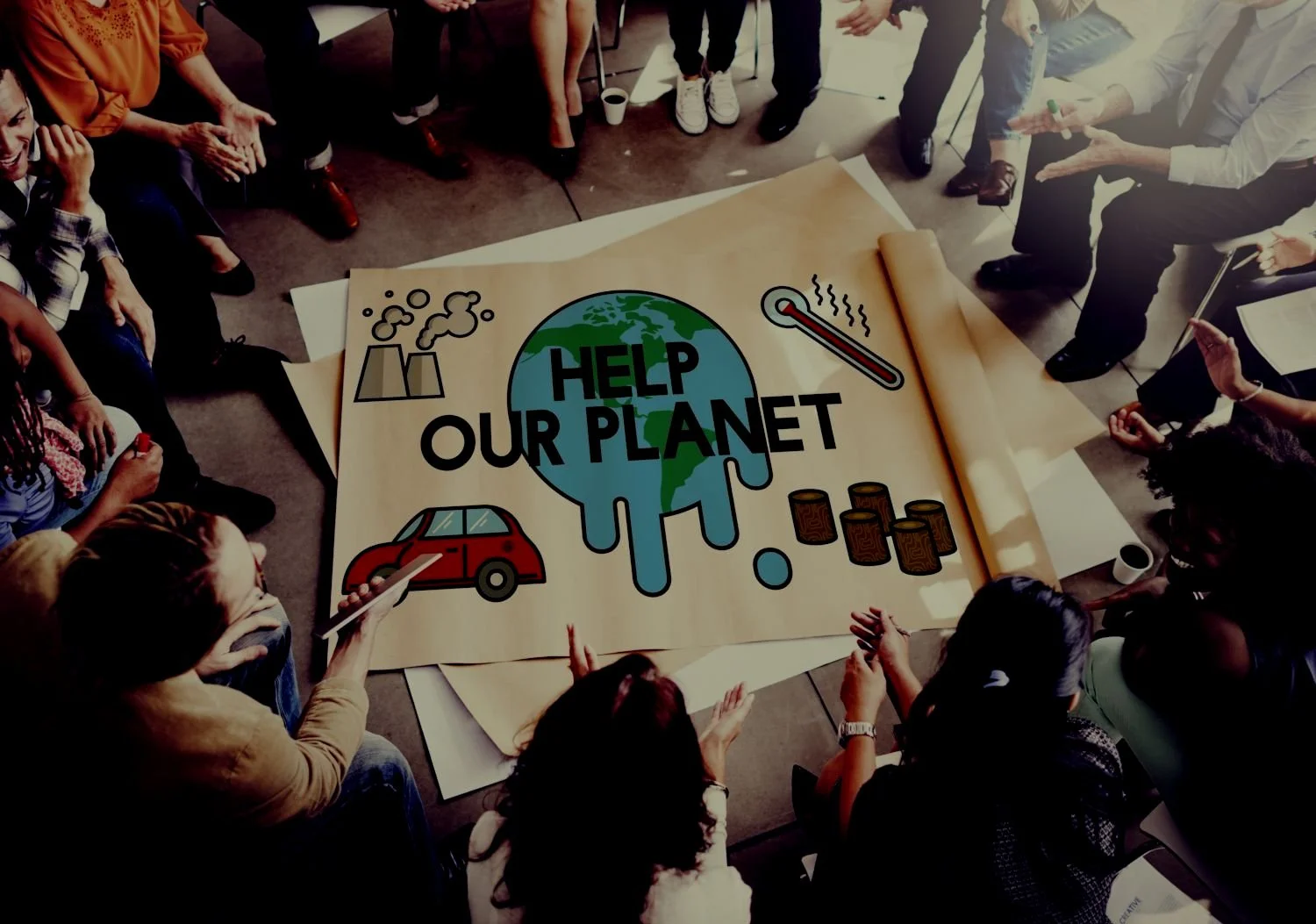December 2021
This manual entry was conceptualised as a guide on how to sustainably cope with one of the crises that developed from the COVID-19 pandemic in 2021 - the massive amount of waste generated.
However, we designed it to serve as a guide on how to be eco-conscious about a pandemic and a lookdown in general.
We share ideas and inspiration for sustainable options and measures in the following.
A PANDEMIC & OUR Consumption
The COVID-19 pandemic in 2021 has heavily affected our consumer behaviours. Specifically, the overall consumption of plastic items increased. For example:
Personal protective equipment (PPE) such as masks, mouth/face shields and gloves.
Household and personal cleaning products and disinfectants, such as rubbing alcohol, sanitisers, and wipes.
Panic buying staples and hygiene products.
Prohibited/ discouraged social activities made people “need” equipment for alternative activities and hobbies.
Packaging material due to augmented online shopping and takeaway food habits
These overall changes in our consumption patterns have led to a problematic increase in waste generation, specifically plastic waste.
The next pandemic will come. But we can prepare better this time and consume less (environmentally harmful).
Below, we have compiled what we can look for.
IMPLEMENTING SUSTAINABLE HABITS & ROUTINES
Ah, the next pandemic is knocking at the door.
Don’t panic. Stay calm, and get started to reflect on your consumption behaviour.
What have I consumed, what will change, and what are my options?
Which purchases are necessary?
What can be done to be more eco-friendly, and how?
Adapt your consumption routines and habits to the “new” life. This will help you to remain/ become a sustainable consumer considering the changed circumstances.
We know changing routines and adapting habits can be pretty tricky. This is why we have compiled a 6-step-by-step Guide to More Sustainable Consumption → to help you find and implement new routines.
HOW TO MINIMISE WASTE PRODUCTION
(during A PANDEMIC/ LOCKDOWN)?
Restrictions in social life and an increased need for medical products lead to increased single-use plastic consumption and waste production. Here are the most important rules for avoiding waste, even in an emergency.
Get more details in our manual entries Carbon Footprint → and Reusables →.
Use what you have. For example, you can use old packaging material, such as plastic wrap or bags, as bin bags instead of buying new ones.
Use reusable PPE.
Bring your Reusable Bag →.
Reuse disposable bags,
Reuse and repurpose single-use containers from takeaway food.
Buy and carry a reusable water bottle whenever you are out and about.
When grocery shopping, favour products with minimal and/or Sustainable Packaging →.
When possible, buy local. There is a high chance there will be less packaging because transporting the products to the point of sale is more streamlined.
If you order food as a takeaway, look for eco-friendly options, such as bringing your own Tupperware to pick up takeout food or asking for compostable boxes, specifically for no cutlery and napkins.
Shop for Sustainable Fashion Brands →.
Shop for second-hand items. When opting for secondhand items, though, make sure that you thoroughly clean and disinfect them before using them. Learn more about Second-hand Fashion →.
When shopping online, look for “Ship in the fewest boxes” options for multiple orders, and recycle, if possible, the packaging your order arrives in.
Avoid single-use packaging and Disposable Products → wherever you can.
SUSTAINABLE PROTECTIVE EQUIPMENT
Also, in the case of protective medical equipment, a fundamental principle of sustainable consumption is to take care of what you already own.
If you need to renew your protective equipment, combine reusable and biodegradable PPEs, such as machine-washable masks, biodegradable gloves, and refillable sanitiser bottles.
In the following, we provide some more details about what to watch out for when you do your shopping:
FACE MASK
Opt for cloth masks. Cloth masks can be washed, disinfected, dried, and reused.
Consider the number of uses. Cloth face masks can be used at least 20 times before discarding them. Remember, using your cotton mask too seldom might be less sustainable than using a disposable surgical mask.
Choose cloth masks made of organically grown cotton.
Opt for locally produced ones.
IS A CLOTH FACE MASK SUFFICIENT?
According to the USA Center for Disease Control and Prevention, although cloth masks' filtration effectiveness is generally lower than that of medical masks and respirators, they still provide protection when well-designed and used correctly.
In general, it is advised to wear cloth masks
for preventive purposes only,
when one is not ill
or has any symptoms of infection.
FACE MASK - SOURCE OF SUPPLY
Here is a list of sustainable face mask producers for your inspiration:
armedangels.com
birdsong.london.com
one-goodthing.com
thesimplefolk.co.uk
ffsbshop.co.uk
MAASK Sustainable Face Mask
PHYNE Organic Cotton Face Masks
Everlane 100% Human Face Mask
Made Trade Recycled Hemp and Organic Cotton Reusable Face Mask
SABINNA Checks and Stripes Face Mask
Baggu Organic Cotton Masks
Horizon Sustainable Face Masks
Khala Design Solidary Cloth Face Covering
Delilah Home Hemp or Organic Cotton Face Masks
RYLEY Recycled Fabric Reusable Mask
For Days Organic Cotton Masks
Original Facie Face Mask
Good Krama Zero Waste Face Masks
Life Without Plastic Organic Cotton Face Mask
Tabitha Eve Reusable Face Mask
Airinium Lite Air Mask with 5 Layers
Bewooden Cotton Masks
Dunesi Sustainable Cotton Face Mask
Melawear
CARING FOR YOUR REUSABLE MOUTH-NOSE PROTECTION
To make your reusable mouth-nose protection last and reduce environmental costs, treat it carefully, as you would wool, silk, or other fine material.
Wash in the washing machine with your regular laundry.
Alternatively, hand-wash your mask with tap water and laundry detergent or soap.
After washing, hang your mask in direct sunlight to dry completely or dry on your radiator.
GLOVES
Surgical single-use gloves made of synthetic rubber often end up in a landfill, where they remain for about 100 years. So, if wearing gloves is necessary, sustainable alternatives over single-use ones should be preferred.
From an environmental point of view, an ideal pair of sustainable gloves would be made of a material with two key attributes: reusability and Biodegradability →.
Here are some producers for your inspiration:
Meditech Gloves provides surgical gloves using natural rubber. This rubber can biodegrade 100 times faster than the widely used synthetic, petroleum-based rubber options. Biodegradable within a year, but more tests could reduce this to about a month.
Plant-based disposable gloves, such as those from plantvibes.com, are 100% Compostable → and can be disposed of via the organic bin.
HAND-SANITISER
If you are searching for an eco-friendly hand sanitiser, here are some factors to consider when shopping:
Containers and packaging that are 100% Recyclable → and reusable (some brands offer plastic-free solutions by preferring aluminium or glass bottles to those made of plastic)
Refill options present a creative and sustainable way to prevent container waste and minimise packaging waste while keeping loyal customers.
Favour brands that offer Carbon-Neutral → shipping.
A sustainable hand sanitiser brand will pay attention to details such as Animal Testing →, safe ingredients, zero-waste packaging, and refill options.
HAND-SANITISER - SOURCE OF SUPPLY
Here is a list of sustainable hand sanitiser brands to help you get started:
Haan Hydrating
Nikau Botanical
Organic Bath Co.
Paume Moisturizing
Purdy & Figg
Sonett
Beauty Kitchen
By Humankind
Cleancult Foaming
Dr. Brunner
Eco Tomorrow
EO Organic
Properly Discard the Protective Equipment
Given the nature of pandemics, there is no genuinely footprint-free way to deal with PPE, especially face masks. However, we can still minimise the negative impacts on the environment, especially by adequately discarding PPEs and, if possible, safely reusing available resources.
When we can not avoid using PPEs, such as latex gloves or face coverings, the best way to prevent and mitigate the impacts of pollution is to dispose of them correctly to ensure that they do not harm the Earth’s ecosystem.
Medical waste belongs in your household's residual waste bin.
Never put any PPE (i.e. gloves, masks, wipes, cloths) in your recycling bins, as they cannot be recycled through conventional recycling facilities.
When face masks and gloves are discarded as litter, they can break down into smaller pieces (weathering, ultraviolet radiation, abrasion), causing microplastic pollution (Aragaw, 2020).
LEARN MORE
Check our sources: Bibliography →













